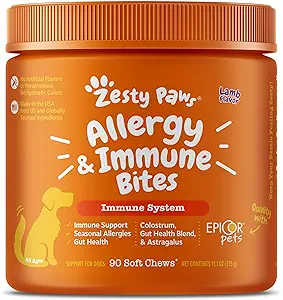This ” Health Guide for Rottweilers: Wellness Made Easy ” post may contain affiliate links, which means I’ll receive a commission if you purchase through my link, at NO EXTRA COST TO YOU
Health Guide for Rottweilers: Wellness Made Easy
Rottweilers, known for their strength, loyalty, and intelligence, are a popular breed that requires special attention to their health and wellness. To ensure that your Rottweiler thrives, you need to focus on various aspects of their care, including diet, exercise, mental stimulation, regular veterinary checkups, and grooming. In this comprehensive guide, we will delve deeply into each of these areas, offering tips and advice to help your Rottweiler live a long, healthy, and happy life. Moreover, we will discuss common health concerns specific to the breed and how you can address them proactively.

Understanding Rottweiler Health Basics
First and foremost, understanding the basic health needs of a Rottweiler is crucial. Like all breeds, Rottweilers have unique characteristics that influence their health and wellness. To begin with, Rottweilers are a large and muscular breed, which means they are prone to certain health issues related to their size and build. For instance, joint problems such as hip dysplasia are common, especially as they age. Additionally, their deep chests make them more susceptible to bloat, a serious and potentially life-threatening condition. However, with the right care and attention, many of these issues can be managed or even prevented.
Diet and Nutrition: The Foundation of Wellness
A well-balanced diet plays a critical role in maintaining your Rottweiler’s health. Not only does proper nutrition support their physical health, but it also influences their energy levels, coat condition, and overall well-being. When selecting food for your Rottweiler, opt for high-quality dog food that is rich in protein. This is essential because Rottweilers need adequate protein to support their muscular build. Additionally, include a balanced mix of carbohydrates, fats, vitamins, and minerals to ensure they receive all the nutrients they need.
Moreover, portion control is vital. Rottweilers can be prone to obesity if overfed or not exercised adequately. Therefore, follow the feeding guidelines provided by your veterinarian or the dog food manufacturer, and adjust the portions based on your dog’s age, weight, and activity level. Regularly monitor their weight and body condition to ensure they stay in optimal shape. On top of that, avoid feeding them table scraps or unhealthy treats, as this can lead to weight gain and other health issues.
Exercise: Keeping Your Rottweiler Fit and Healthy
Exercise is another key component of your Rottweiler’s health and wellness. These dogs are naturally active and require regular physical activity to maintain their muscle tone, mental health, and prevent obesity. At a minimum, your Rottweiler should receive at least an hour of exercise each day. This can include walks, runs, playtime in the yard, or even structured activities like agility training.
Furthermore, exercise isn’t just about physical activity; it also provides mental stimulation. Rottweilers are intelligent dogs that enjoy challenges, so incorporating activities that engage their minds is beneficial. For example, teaching them new tricks, playing fetch, or using puzzle toys can help keep them mentally sharp. Additionally, regular exercise helps reduce the risk of behavioral issues such as excessive barking or destructive chewing, which can occur if a Rottweiler becomes bored or restless.
Regular Veterinary Care: Preventive Health Measures
To keep your Rottweiler in peak health, regular veterinary care is non-negotiable. First and foremost, schedule annual checkups to monitor their overall health and catch any potential issues early. During these visits, your veterinarian will likely perform routine blood tests, check for parasites, and ensure that your Rottweiler is up-to-date on vaccinations. Moreover, these visits provide an opportunity to discuss any concerns you may have about your dog’s health, diet, or behavior.
In addition to routine checkups, be vigilant about your Rottweiler’s dental health. Dental problems can lead to more serious health issues if left untreated. Therefore, regular teeth cleaning, either at home or by a professional, is essential. Furthermore, keep an eye out for any signs of discomfort or pain, such as difficulty eating or excessive drooling, as these could indicate dental issues that require immediate attention.
Common Health Concerns in Rottweilers
Rottweilers, like all breeds, have specific health concerns that owners should be aware of. Understanding these issues allows you to take proactive steps to prevent or manage them. Let’s explore some of the most common health problems in Rottweilers.
1. Hip and Elbow Dysplasia
Hip and elbow dysplasia are genetic conditions that affect many large breeds, including Rottweilers. These conditions occur when the joints don’t form properly, leading to pain, arthritis, and eventually, mobility issues. To reduce the risk, ensure that your Rottweiler maintains a healthy weight and receives regular exercise. Additionally, providing joint supplements such as glucosamine and chondroitin can support joint health. Early diagnosis is crucial, so if you notice any signs of discomfort or limping, consult your veterinarian immediately.
2. Bloat (Gastric Dilatation-Volvulus)
Bloat, or gastric dilatation-volvulus (GDV), is a serious and often life-threatening condition that affects deep-chested breeds like Rottweilers. Bloat occurs when the stomach fills with gas and twists, cutting off blood flow and leading to shock. Symptoms include a distended abdomen, restlessness, and difficulty breathing. Bloat requires emergency veterinary care. To reduce the risk, feed your Rottweiler smaller, more frequent meals rather than one large meal, and avoid vigorous exercise immediately after eating.
3. Heart Issues (Subaortic Stenosis)
Subaortic stenosis (SAS) is a congenital heart defect common in Rottweilers. This condition involves a narrowing of the aorta, which can lead to heart failure if left untreated. Regular veterinary checkups are essential to detect SAS early. Signs of heart issues include lethargy, coughing, and difficulty breathing. If your Rottweiler exhibits any of these symptoms, seek veterinary care immediately.
4. Cancer
Rottweilers have a higher risk of developing certain types of cancer, including osteosarcoma (bone cancer) and lymphoma. Early detection is key to successful treatment, so be vigilant for any unusual lumps, unexplained weight loss, or changes in behavior. Regular veterinary exams can help catch cancer early, increasing the chances of successful treatment.
5. Allergies and Skin Conditions
Rottweilers can be prone to allergies, which may manifest as skin irritation, itching, or gastrointestinal issues. Common allergens include certain foods, pollen, and flea bites. If you notice your Rottweiler scratching excessively or developing skin lesions, consult your veterinarian to determine the cause and appropriate treatment. Moreover, regular grooming and flea prevention can help reduce the risk of skin problems.
Grooming: Maintaining a Healthy Coat and Skin
Grooming is an important aspect of your Rottweiler’s health and wellness. Regular brushing helps remove loose fur, reduce shedding, and keep their coat healthy. Furthermore, grooming allows you to check for any skin issues, lumps, or parasites that may require attention. Rottweilers have a short, dense coat that benefits from weekly brushing to keep it in good condition.
Additionally, regular bathing helps keep your Rottweiler’s skin and coat clean, but it’s important not to overdo it, as excessive bathing can strip the coat of its natural oils. Aim to bathe your Rottweiler every few months or as needed, using a dog-specific shampoo that won’t irritate their skin.
Moreover, don’t forget about nail care. Regular nail trimming prevents overgrowth, which can lead to discomfort or even injury. If you’re not comfortable trimming your Rottweiler’s nails yourself, your veterinarian or a professional groomer can help.
Conclusion
In conclusion, the health and wellness of Rottweilers require a comprehensive approach that includes proper nutrition, regular exercise, consistent veterinary care, and attentive grooming. By understanding the unique health concerns associated with the breed and taking proactive steps to address them, you can help your Rottweiler live a long, happy, and healthy life. With the right care, your Rottweiler will not only thrive but also remain a loyal and loving companion for years to come.

© Copyright 2024. All rights reserved.





